The University of Waterloo has seen an increase in the number of researchers included in this year's Highly Cited Researchers™ 2025 list recently published by Clarivate. The list highlights the world's most influential researchers and scientists.
Citations and peer review are the lifeblood of academic research, ensuring both integrity and innovation. The Highly Cited Researchers™ list recognizes only one in 1,000 researchers from around the world.
The Waterloo researchers span four faculties including Engineering, Environment, Health and Science.
"This recognition is a testament to the exceptional research being done at Waterloo," says Charmaine Dean, vice-president, Research and International at the University of Waterloo. "Their work not only exemplifies the diversity and breadth of research being done at our institution, but its impact. It also supports the advancement of our Global Futures initiative. We see some stellar intersections here with sustainability, technology and health."
The evaluation and selection process is intended to look beyond solely volume or visibility, by placing an emphasis on trust. The list's criteria and process are openly shared with the research community for transparency.
The Waterloo researchers on this year's Highly Cited Researchers™ 2025 list from Clarivate include:
 Dr. Jennifer Clapp | Faculty of Environment
Dr. Jennifer Clapp | Faculty of Environment
Dr. Jennifer Clapp is a professor and Canada Research Chair in Global Food Security and Sustainability. She is currently a member of the International Panel of Experts on Sustainable Food Systems (IPES-Food) and a member of the Scientific Advisory Committee of the UN Food Systems Coordination Hub. Her research focuses on the themes of global food security politics and governance, food systems sustainability and the international political economy of the environment.
She is currently a member of the International Panel of Experts on Sustainable Food Systems (IPES-Food) and a member of the Scientific Advisory Committee of the UN Food Systems Coordination Hub.
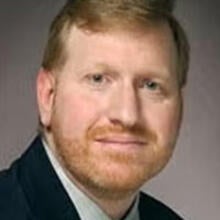 Dr. Michael Fowler | Faculty of Engineering
Dr. Michael Fowler | Faculty of Engineering
Dr. Michael Fowler is a professor in Department of Chemical Engineering and cross-appointed to the Department of Mechanical and Mechatronics Engineering and Canada Research Chair in Zero-emissions Vehicles and Hydrogen Energy Systems. His research focuses on electrochemical power sources, specifically degradation, reliability, and fault analysis of control of hydrogen fuel cells and batteries. This includes modelling of energy storage systems for a wide field of applications including zero-emission storage and energy generation.
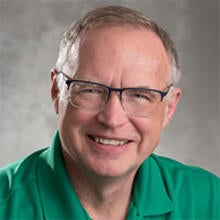 Roydon Fraser | Faculty of Engineering
Roydon Fraser | Faculty of Engineering
Dr. Roydon Fraser is the teaching chair and a professor in the Department of Mechanical and Mechatronics Engineering. He is also an investigator in the Green Intelligent Transportation Systems Group at the University of Waterloo. His research focuses on energy conversion systems such as the characterization of spark ignition engine combustion, the integration and control of alternative fuels powertrains into vehicles, and the application of energy and the second law of thermodynamics to the characterization and optimization of complex thermodynamic systems. Dr. Fraser has mentored student Teams in the design and prototype of hybrid electric vehicles, and in the student the competition "EcoCAR EV Challenge," a four-year collegiate automotive engineering competition for the next generation of battery electric vehicles.
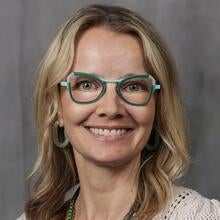 Sharon Kirkpatrick | Faculty of Health
Sharon Kirkpatrick | Faculty of Health
Dr. Sharon Kirkpatrick is a professor and University Research Chair in the School of Public Health Sciences. She bridges her research with her background as a registered dietitian to focus on the intersections between nutrition, human and planetary health, equity and policy, using a systems thinking lens. She has particular expertise in dietary assessment.
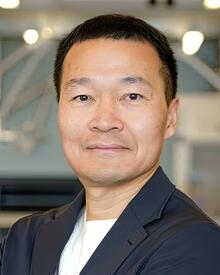 Juewen Liu | Faculty of Science
Juewen Liu | Faculty of Science
Dr. Juewen Liu is a professor of chemistry and member of the Waterloo Institute for Nanotechnology. His research focuses on functional DNA, biosensors, nanozymes, and biointerface chemistry. A leader in the field of bio-nanotechnology, his lab employs DNA, liposomes, hydrogels and various inorganic nanoparticles as building blocks to construct functional nanomaterials for analytical and biomedical applications. He is also interested in the biotechnology of combinatorial DNA aptamer selection.
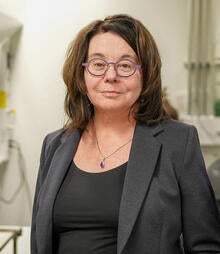 Linda F. Nazar | Faculty of Science
Linda F. Nazar | Faculty of Science
Dr. Linda F. Nazar is a professor and Research Chair in Solid State Materials and University Professor (Chemistry). Her research in inorganic materials chemistry, solid state chemistry and electrochemistry focuses on the development of electrochemical energy storage devices and materials.
She is a Fellow of the Royal Society (UK) and Royal Society of Canada, and an Officer of the Order of Canada. Dr. Nazar has been on the list since 2014.
Along with Dr. Michael Pope, Nazar recently launched the Ontario Battery and Electrochemistry Research Centre.
Daniel Scott | Faculty of Environment
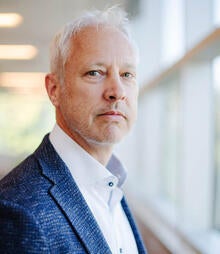
Dr. Daniel Scott is a professor and Research Chair in the Department of Geography and Environmental Management. His research focuses on the interconnections of global change, including climate change, pandemics, demographic change, and sustainable tourism.
He has advised and led projects for a wide range of government agencies and tourism organizations around the world, including United Nations Tourism, United Nations Environment Programme, World Bank, European Tourism Commission, International Olympic Committee, OECD as well as contributing to multiple intergovernmental Panel on Climate Change reports.
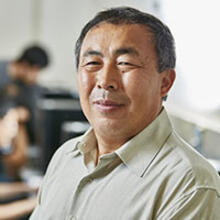 Xuemin (Sherman) Shen | Faculty of Engineering
Xuemin (Sherman) Shen | Faculty of Engineering
Dr. Xuemin (Sherman) Shen is a professor in the Department of Electrical and Computer Engineering. His research focuses on a wide range of topics in wireless communication networks, including network resource management, network security and privacy preservation, AI for Networks, 5G and beyond, and vehicular networks. Dr. Shen has pioneered fundamental and critical advancements in engineering solutions that significantly enhance data transmission speed, accuracy, reliability, and information security within wireless communications networks.
A Fellow of IEEE, the Royal Society of Canada, the Canadian Academy of Engineering, Engineering Institute of Canada, and the Engineering Academy of Japan, Dr. Shen also served as the President of IEEE Communications Society, Editor-in-Chief of IEEE Internet of Things Journal, and IEEE Network.
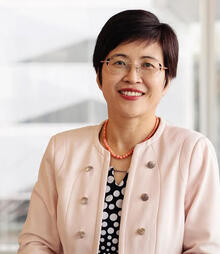 Aiping Yu | Faculty of Engineering
Aiping Yu | Faculty of Engineering
Dr. Aiping Yu is a professor of chemical engineering and director of the Carbon Nanotechnology Laboratory. Her area of research is materials development for batteries, supercapacitors and nano-composites. She is an expert in carbon nanotubes, graphene, MXene and 2D materials, allowing her to design the proper architecture, porosity and polarity of nanomaterials for high energy storage devices and multi-functional nanocomposites.
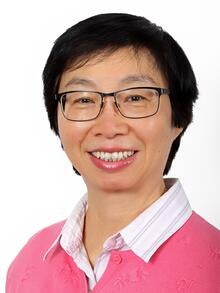 Weihua Zhuang | Faculty of Engineering
Weihua Zhuang | Faculty of Engineering
Dr. Weihua Zhuang is a professor in the Department of Electrical and Computer Engineering and University Research Chair. Her research includes network virtualization, network architecture for both wireless and wireline domains, adaptive networking algorithms and protocols, and multi-dimensional resource allocation for data transmission, processing and caching, with applications to connected autonomous vehicles, industrial IoT, and intelligent communities.
Dr. Zhuang is a fellow of the IEEE, Royal Society of Canada, Canadian Academy of Engineering and Engineering Institute of Canada. She served as the President of IEEE Vehicular Technology Society during 2023-2024.
The list also includes Waterloo alumni C.Y. Kwok (BASc '14, PhD '22), Quan Pang (MSc '14, PhD '17) and Dan Luo (PhD '20) along with adjunct professors Satywam Panchal and Zhongwei Chen.






